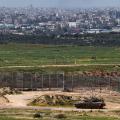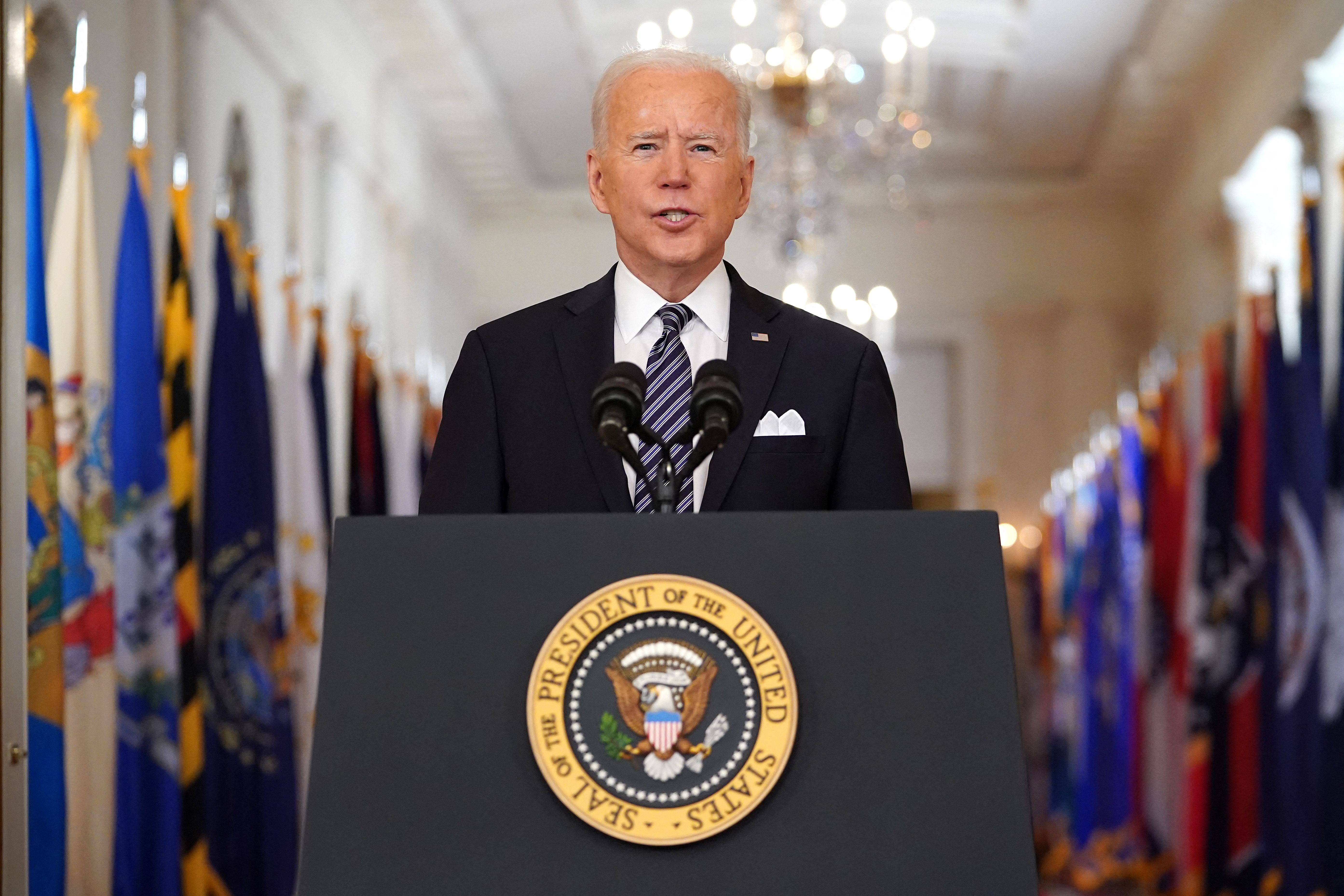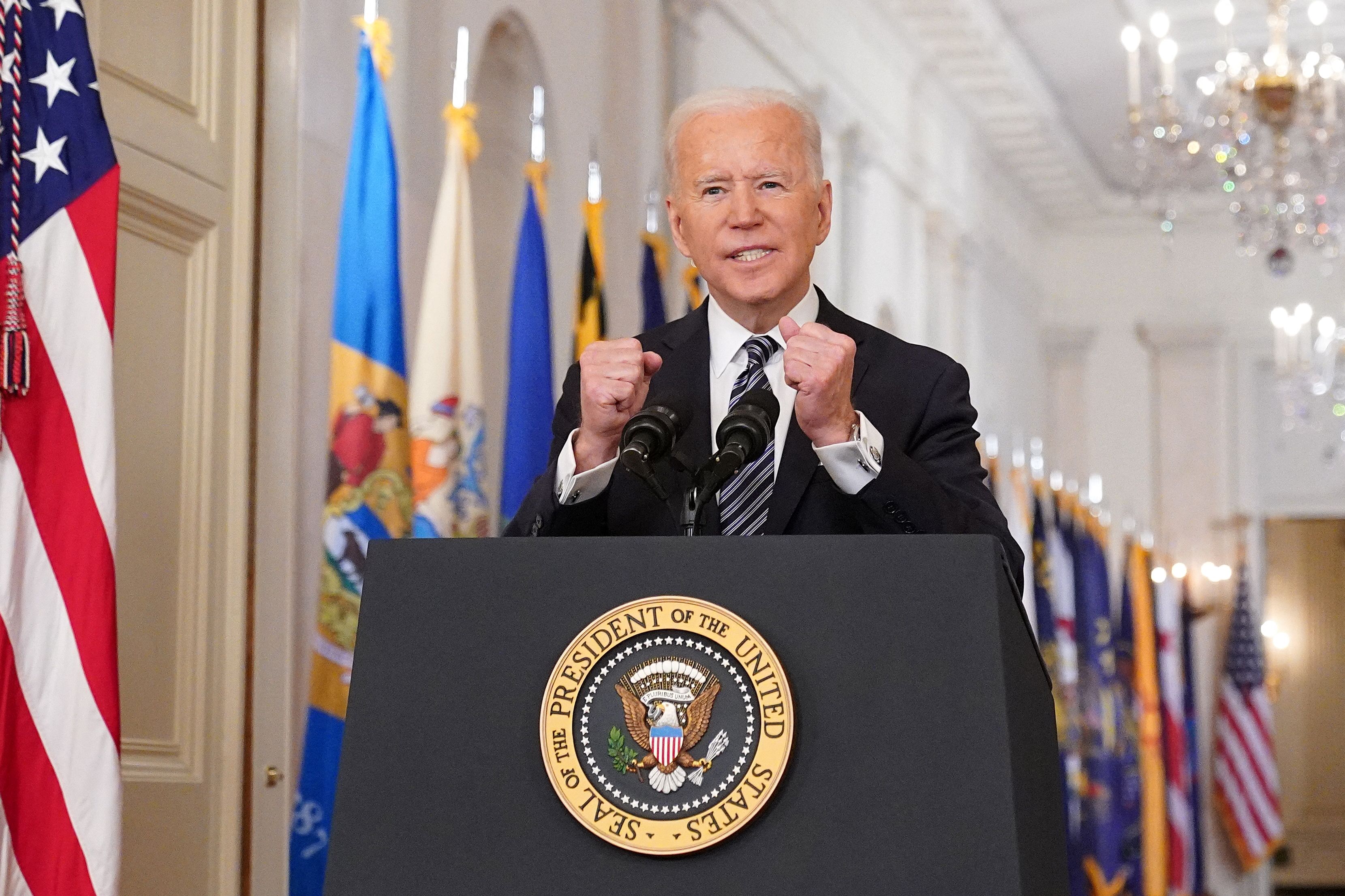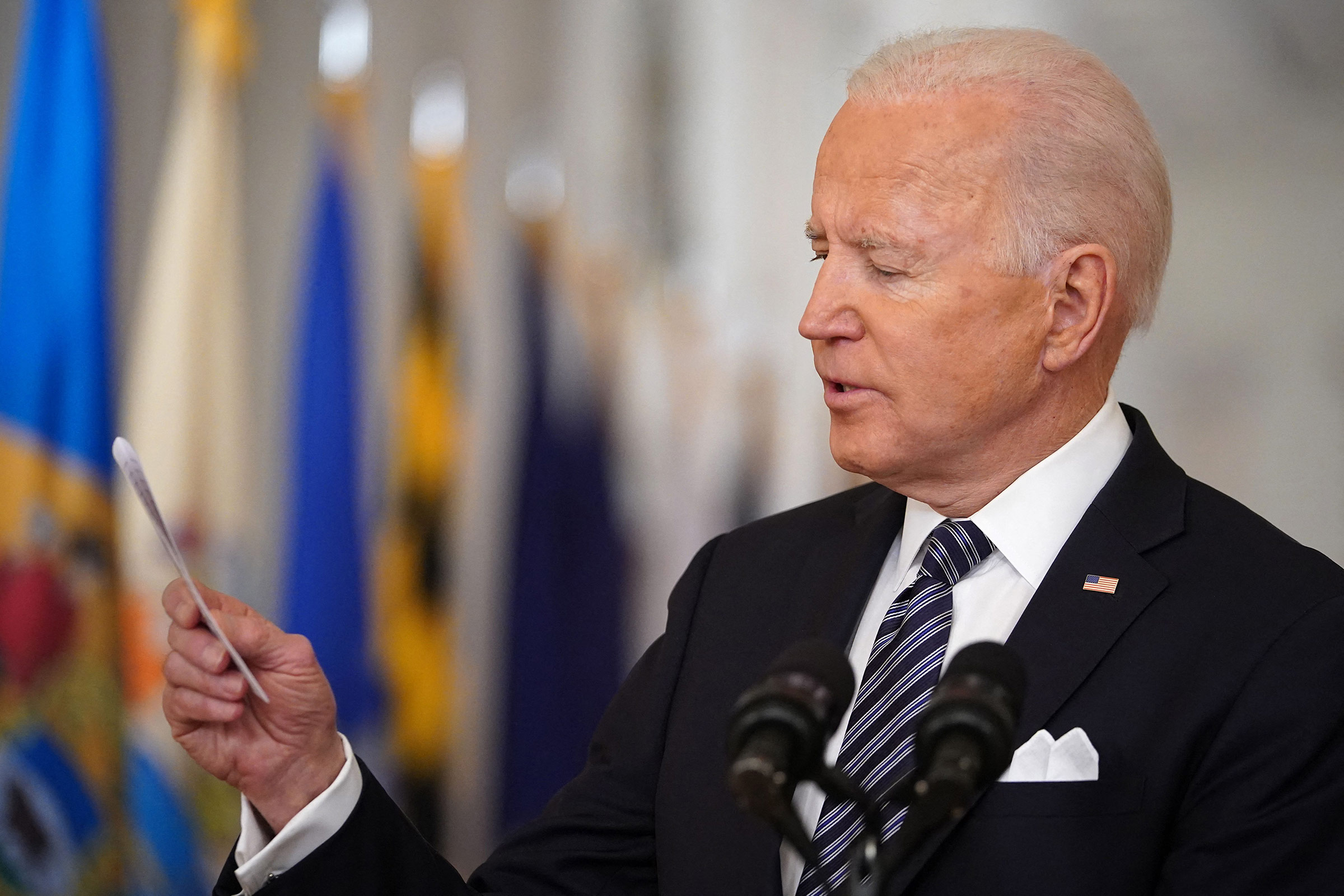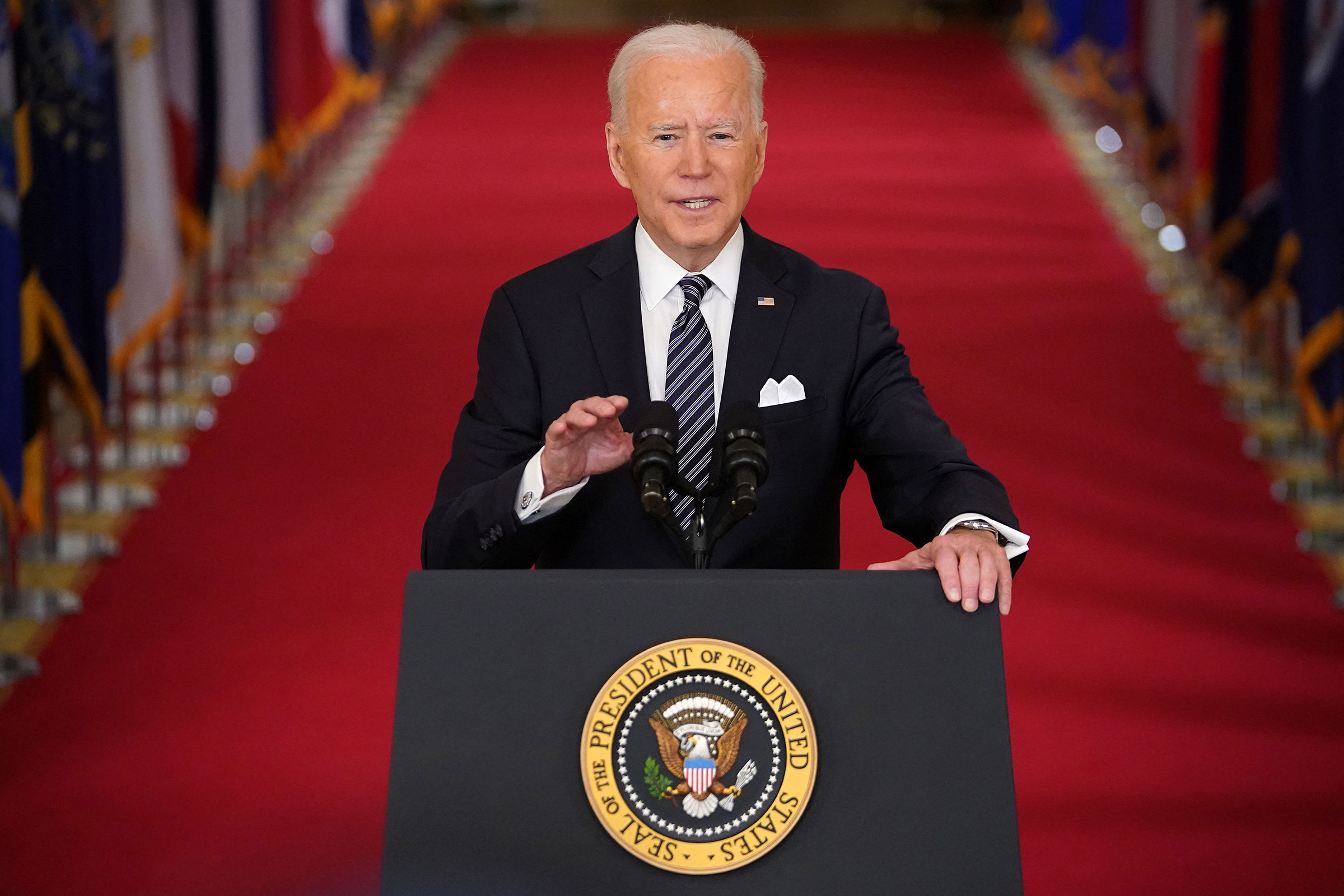
President Biden shared words of solidarity and encouragement tonight during a nationally televised address acknowledging the one-year anniversary since Covid-19 shuttered most of the US.
Here are some of the key lines from his speech:
- On a year that should never have been: "A year ago we were hit with a virus that was met with silence and spread unchecked, denials for days, weeks, then months. That led to more deaths, more infections, more stress, and more loneliness," Biden said. "A year filled with the loss of life and the loss of living for all of us. But in the loss we saw how much there was to gain in appreciation, respect and gratitude, finding light in the darkness is a very American thing to do."
- On Covid-19 variants: "As I told the woman in Pennsylvania, I’ll tell you the truth. July 4th with your loved ones is the goal, but with goals, a lot can happen,” Biden said. “Conditions can change. The scientists have made clear that things may get worse again as new variants of the virus spread. We’ve got work to do to ensure that everyone has the confidence and safety and effectiveness of all three vaccines.”
- On Americans losing faith in democracy: “We lost faith in whether our government and our democracy can deliver on really hard things for the American people,” Biden said, adding to comments about all the things the pandemic had taken away. "As I stand here tonight we're proving once again something I've said time and time again, until you're probably tired of hearing me say it. I say to foreign leaders and domestic alike. It is never, ever a good bet to bet against the American people."
- On the importance of getting vaccinated: "If we do all this, if we do our part, if we do this together, by July 4th there's a good chance you, your families and friends will be able to get together in your backyard or your neighborhood and have a cookout and a barbecue and celebrate Independence Day."
- On reopening schools: "With the passage of the American Rescue Plan, and I thank again the House and Senate for passing it, and my announcement last month of a plan to vaccinate teachers and school staff, including bus drivers, we can accelerate [the] massive nationwide effort to reopen our schools safely and meet my goal that I stated at the same time of 100 million shots of opening a majority of K through 8 schools in my first 100 days in office," Biden said. "This is going to be the number one priority of my new secretary of education, Miguel Cardona."
- On hate crimes against other Americans: "Too often, we have turned against one another. A mask, the easiest thing to do to save lives, sometimes, it divides us, states pitted against one another, instead of working with each other, vicious hate crimes against Asian Americans, who have been attacked, harassed, blamed and scapegoated." Biden added: "At this very moment, so many of them, our fellow Americans, they're on the front lines of this pandemic trying to save lives, and still, still they're forced to live in fear for their lives just walking down streets in America. It's wrong. It's un-American. And it must stop."


